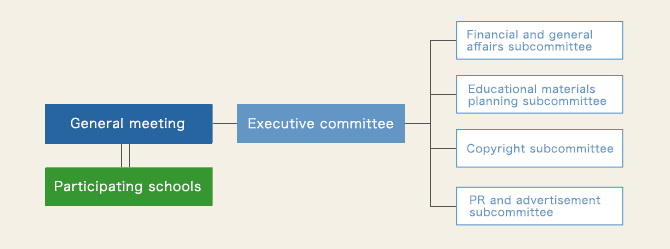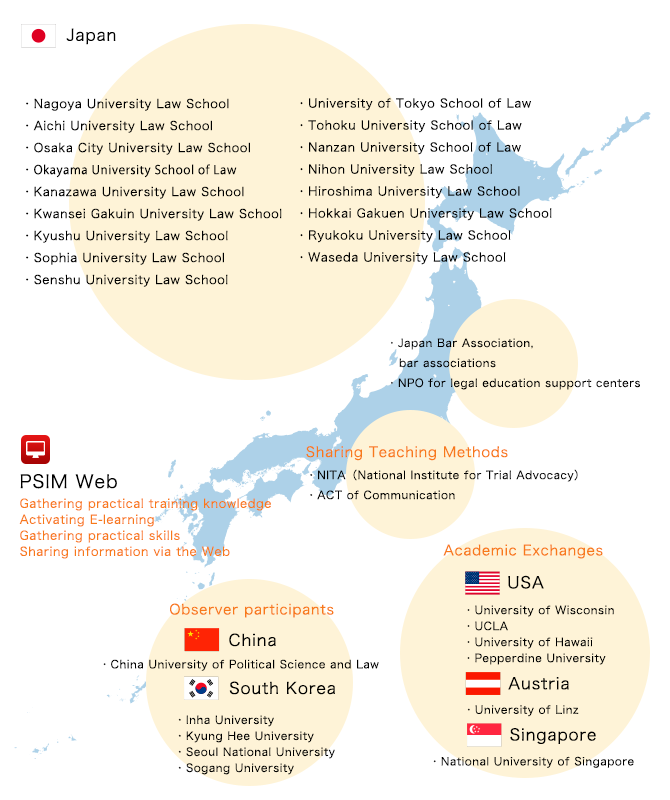How PSIM was formed
In 2004 law schools were established in Japan. With this appeared new training courses in professional skills, such as in interviewing, cross-examining, and negotiating. Such courses had been largely absent in legal education before this. Consequently, such courses were complete new territory for law faculties. There was a shortfall in adequate educational resources, methods, and training staff. In response to this, the Japanese Ministry of Education set up the Professional Skill Instruction Materials Project (PSIM Project), with Nagoya University serving as the main institution, and this was active until 2006. Building on the successes of this project, in 2007 the organizational structure was changed to an inter-university one as the new PSIM Consortium, which is how it operates today
Aims
The PSIM Consortium has created a PSIM Web which acts as an internet-based network between the participating schools. It implements educational activities that serve as a bridge between theory and practice. It supports the training of professionals in communication skills through the following activities:
- The development and provision of practical skill instruction through mock courts and lawyering
- The development of educational theories in professional skill education
- The development of teacher training programs for professional skill education
Organization

Progress
The PSIM Consortium engages in activities that gather together and connect the experiences of the participating schools. Further to this, it creates academic exchanges with overseas institutions. The Consortium is linked through academic cooperation with NITA in the USA. It includes five non-Japanese schools participating as observers. In addition to this, it engages in mutual exchanges of information in regard to practical skills training methods and materials creation, in partnership with Wisconsin State University, UCLA, the University of Hawaii, Pepperdine University, the University of Linz in Austria, and the National University of Singapore.

